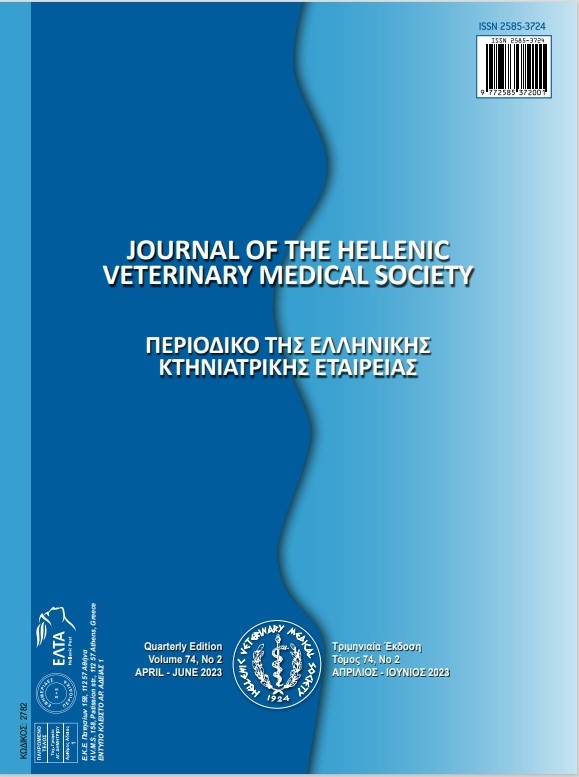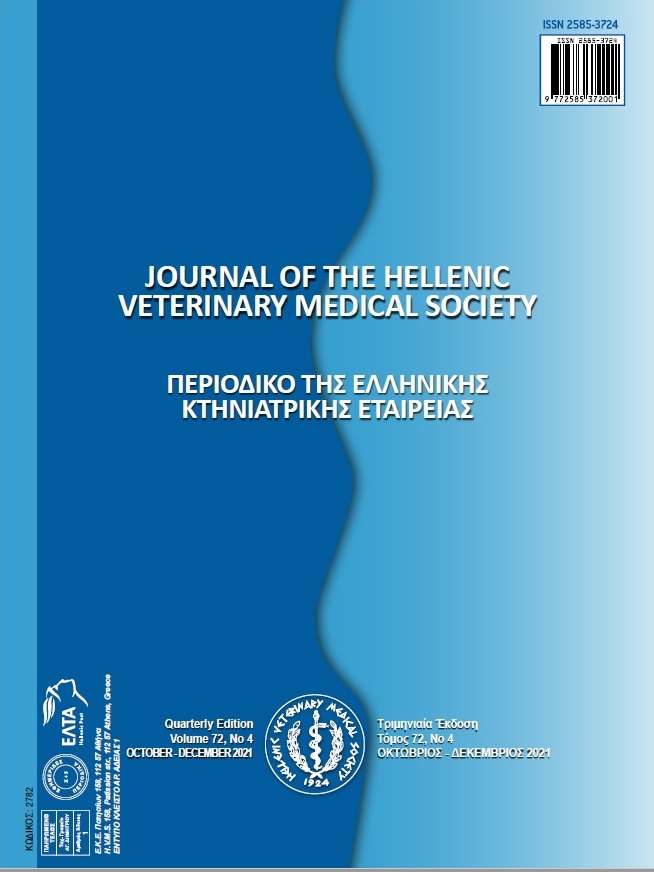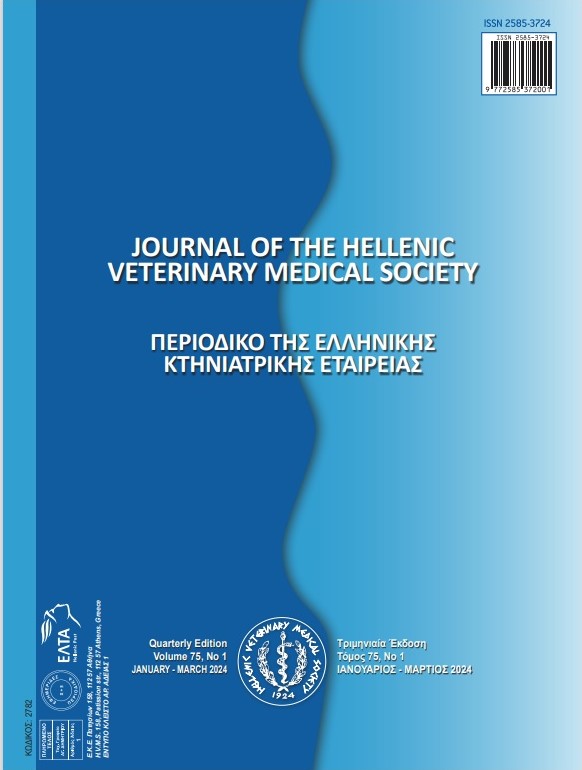Comparison of selected levels of serum elements / minerals in obese dogs

Abstract
Obesity is the most common metabolic disorder defined as excessive adipose tissue accumulation in the body. Elements and minerals are crucial for biological metabolism. There have been limited studies based on the relationship between elements/minerals and obesity in dogs. The study was aimed to evaluate possible alterations of selected serum elements/minerals -copper (Cu), iron (Fe), zinc (Zn), selenium (Se), chromium (Cr), nickel (Ni), calcium (Ca), phosphorus (P), magnesium (Mg), boron (B), cobalt (Co) and aluminum (Al)- in obese dogs. The study groups were categorized as obese group (n:20) and controls (n:10) with different breeds and genders due to body condition scoring system cared under similar conditions fed with dry commercial food once daily. Serum elements/minerals in serum were analyzed by using inductively coupled plasma-optical emission spectrophotometer (ICP-OES). Obese dogs had statistically higher serum Fe levels compared with healthy controls. A positive correlation was found between serum levels of Cr-Ni; Cu-Mg; Cu-Se; Mg-Se; Mg-Ca; Mg-P; B-Co; B-Ca; Ni-Co; Co-Ca and Ca-P in obese dogs. It has been accepted that obesity is a pro-inflammatory process priorly initiating in adipose tissue. Higher serum Fe levels in obese dogs might be related with inflammation during the obesity process. Moreover, the strong correlations among other discussed elements/minerals even with no statistical alterations of serum levels in obese dogs should be elucidated with further studies. Elements and minerals might be evaluated as biomarkers for the determination of effects of obesity in dogs.
Article Details
- How to Cite
-
Cihan, H., Ateş , F., Karış, D., Tunca, M., Bozkurt, N., Parkan Yaramış, Ç, Bilgiç, B., & Or, M. (2023). Comparison of selected levels of serum elements / minerals in obese dogs . Journal of the Hellenic Veterinary Medical Society, 74(2), 5721–5730. https://doi.org/10.12681/jhvms.30195 (Original work published July 5, 2023)
- Issue
- Vol. 74 No. 2 (2023)
- Section
- Research Articles

This work is licensed under a Creative Commons Attribution-NonCommercial 4.0 International License.
Authors who publish with this journal agree to the following terms:
· Authors retain copyright and grant the journal right of first publication with the work simultaneously licensed under a Creative Commons Attribution Non-Commercial License that allows others to share the work with an acknowledgement of the work's authorship and initial publication in this journal.
· Authors are able to enter into separate, additional contractual arrangements for the non-exclusive distribution of the journal's published version of the work (e.g. post it to an institutional repository or publish it in a book), with an acknowledgement of its initial publication in this journal.
· Authors are permitted and encouraged to post their work online (preferably in institutional repositories or on their website) prior to and during the submission process, as it can lead to productive exchanges, as well as earlier and greater citation of published work.




